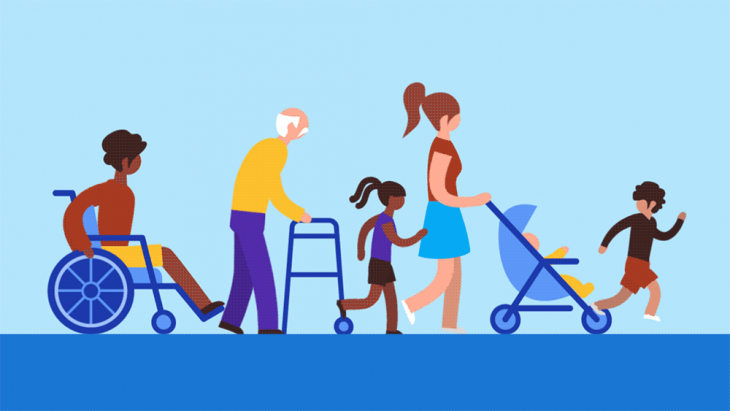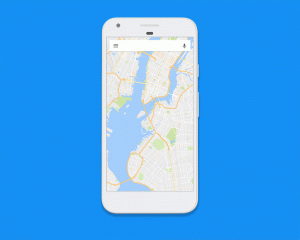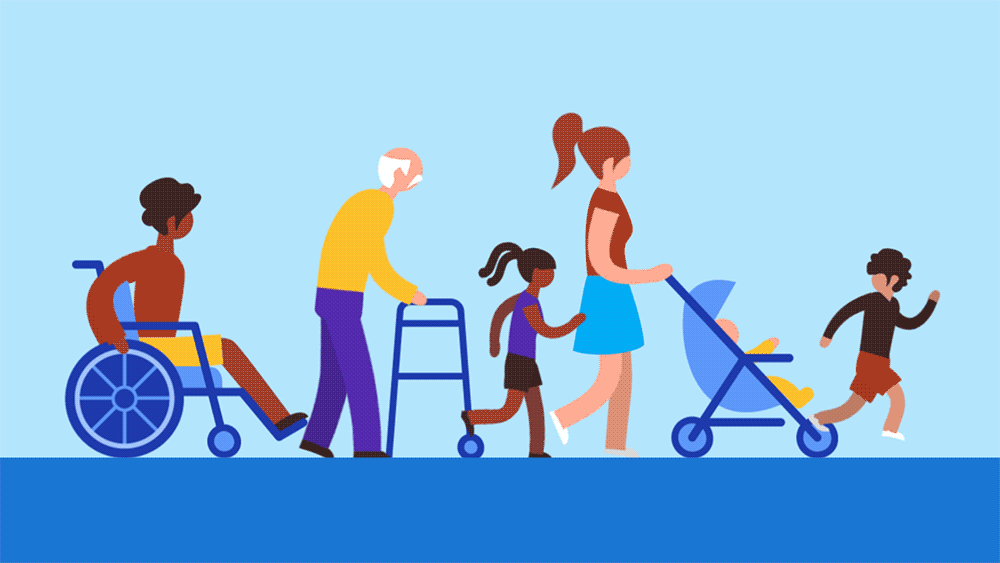
Google’s Map and Local Guides team have taken to their blog overnight calling on people with disabilities and their family, carers and friends or even the general public to help add information relating to accessibility about venues, places of interest and transport stops and interchanges.
The call to arms comes from Sasha Blair-Goldensohn who is a Software Engineer for Google Maps Content and Community team, who after an accident eight years ago has discovered what it’s like to navigate the world on wheels. As Sasha learnt, that those of us with mobility issues need information about places before we arrive. Does the art museum have a stair-free entrance? What about the cafe across the street? And is there an accessible restroom at that new restaurant?
And Sasha certainly isn’t alone, with more than 65 million people worldwide need wheelchairs, myself included in that figure.
As someone who uses a wheelchair and other mobility aides (such as either a walker or walking sticks) at times when able to other than my wheelchair, I have found that I would be searching and checking whether transport options, venues, places of interest, restaurants, theatres etc are wheelchair accessible either through Google searches or websites and where not available through these searches, I would have to contact them via my mobile to find this information out and what I would need to do to access these type of facilities.
Once I have arrived at the location, or even before hand, finding out where accessible facilities such as bathrooms, change rooms or accessible seating generally is.
Thats why starting today, Google’s Map’s team is calling on Local Guides, a community of people who contribute their expertise about places on Google Maps, to add more wheelchair accessibility attributes to the map. If each of our tens of millions of Local Guides answers three of these questions every day for two weeks, we can gather nearly two billion answers to help people who rely on this information every day.
But this information won’t just help those in wheelchair or who use other medical aides, but also the elderly of whom there are going to be a growing number of the elderly over the coming yeasrs but also families and/or parents with prams or strollers, or anyone making plans with a friend who has impaired mobility.
It only takes a few seconds or minutes to complete questions to help provide this quite critical data and information. To do this you will need to first, make sure your Google Maps Location History is turned on. Then visit “Your contributions” in the upper-left menu, tap “Answer questions about a place,” and indicate whether businesses you’ve visited are wheelchair-friendly. (If you aren’t sure, take a look at a brief guide to answering accessibility questions.) On Google Maps for Android, you can even seek out places that need this info.

Google have also stated that during this whole month, Local Guides across the globe are getting together at meet-ups to answer wheelchair accessibility questions on Google Maps. Having a quick look there isn’t any event or meet-up for Sydney just quite yet but it is certainly something I will be looking into myself.
Once you found your local meet-up, you can simply click to join or even consider hosting your own meet-up or event, though you will need to be a Local Guide Level 3 or higher to create a meetup/event. Or gather some friends and explore a neighborhood, adding info as you go.
You can watch a couple of stories regarding what its like as someone in a wheelchair and accessibility issues they face below:
You can also share and spread the word or your knowledge, support or promote your event/meetup by using the following hashtag #LocalGuides and #a11y.





Thanks Alex Dennis for posting such useful Article! The growth of science and technology has made everything possible. Technology has advanced a lot in the world of accessibility. After a wheelchair accessories[ Click here to know more about accessories http://www.spinlife.com/category.cfm?categoryID=64 ]these apps will make ones life much more easier. Disabled people are always in need of some solutions to reduce the effects of their physical disabilities on their daily life. Great help for them!